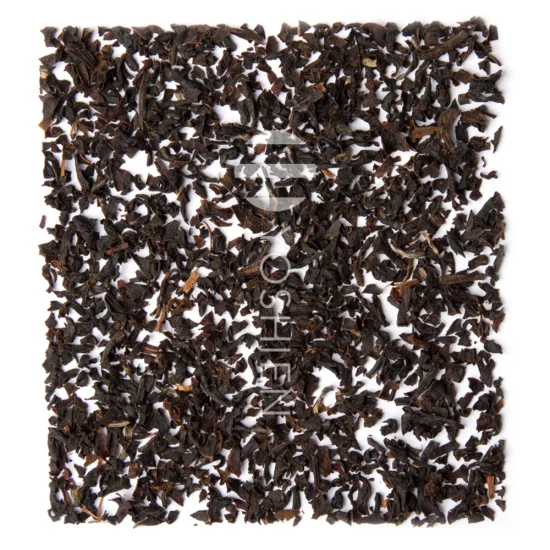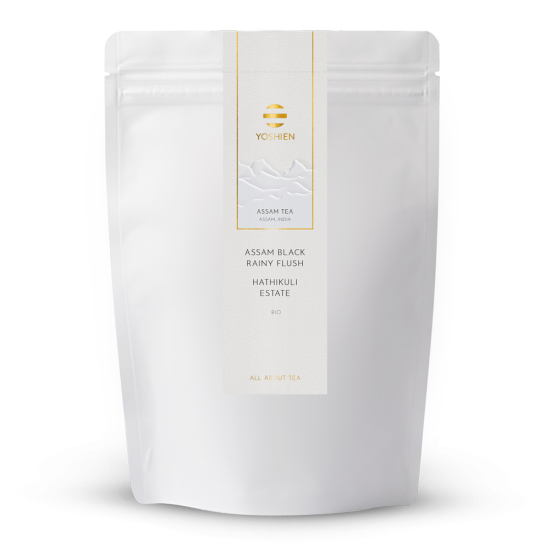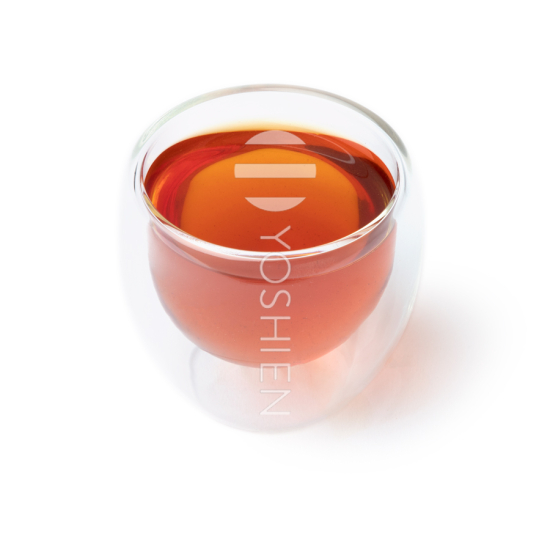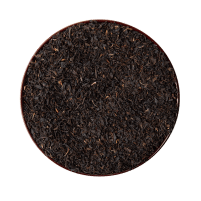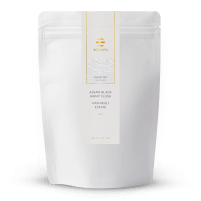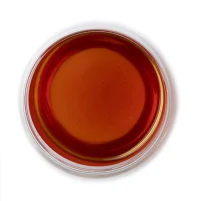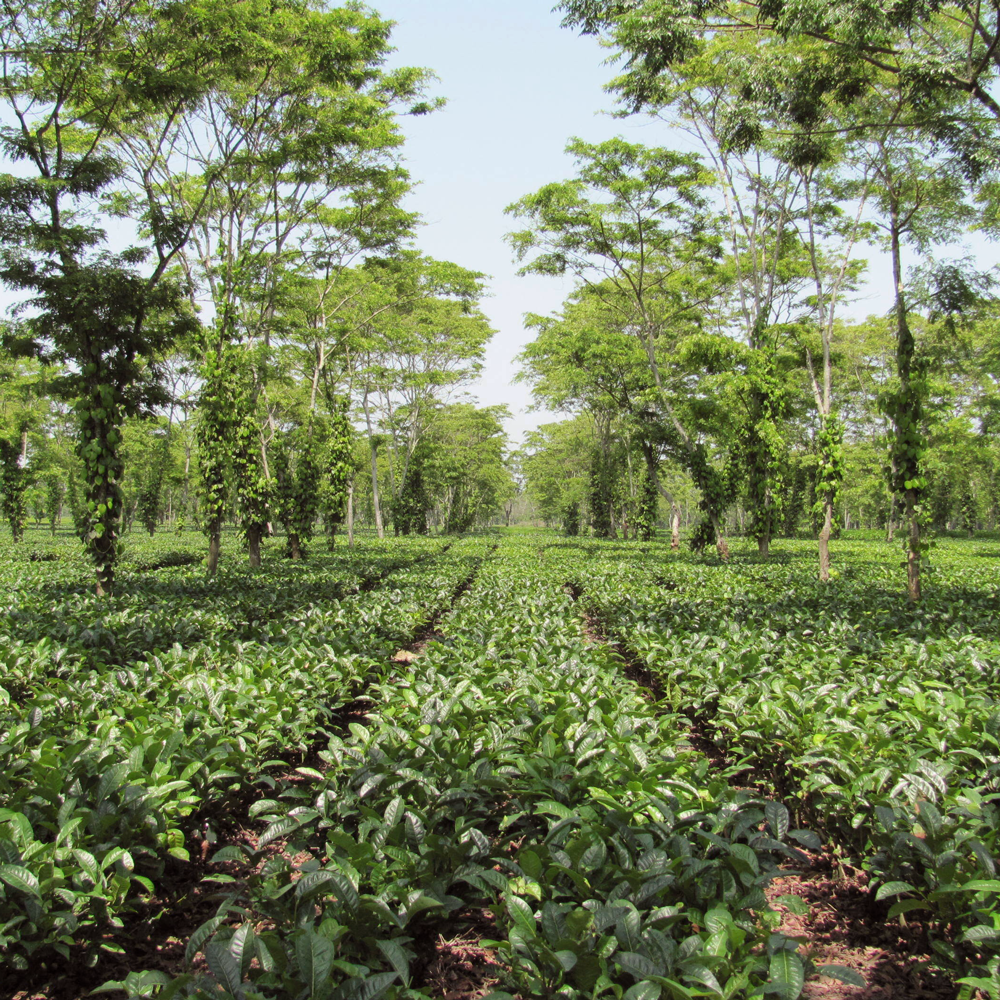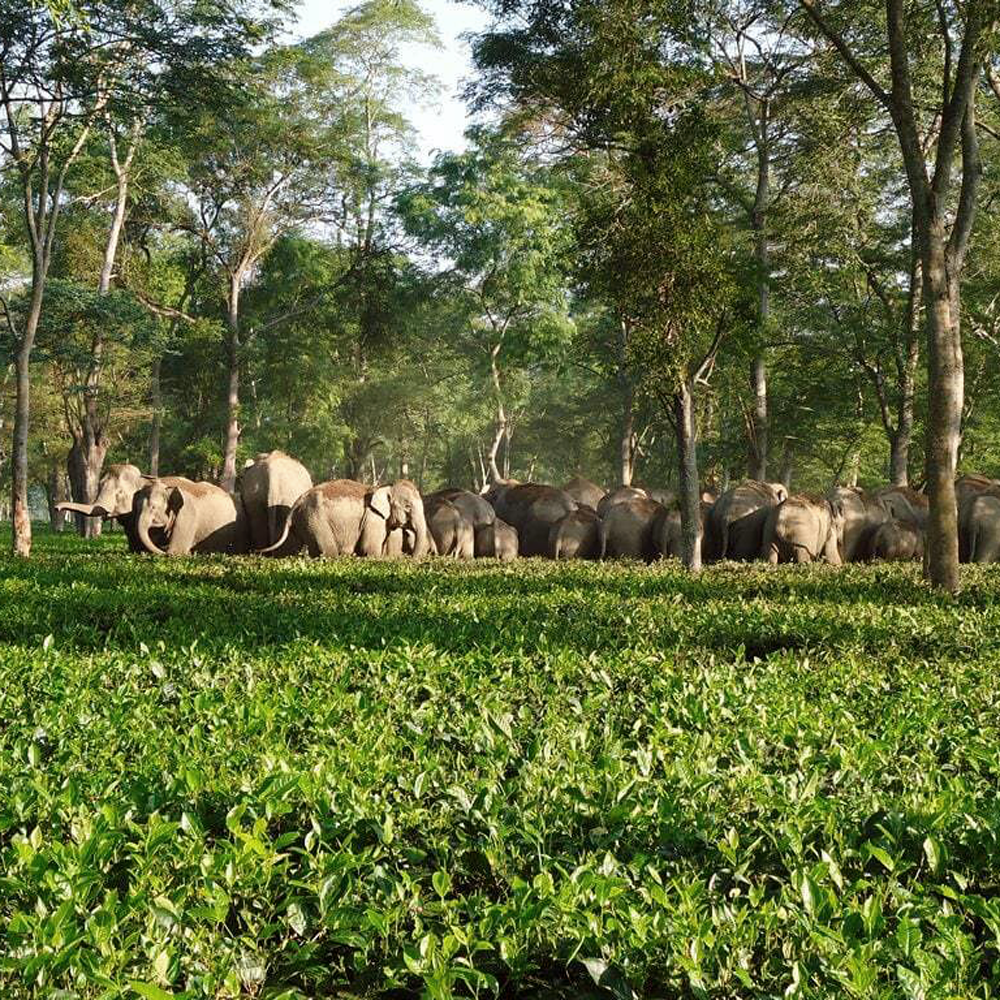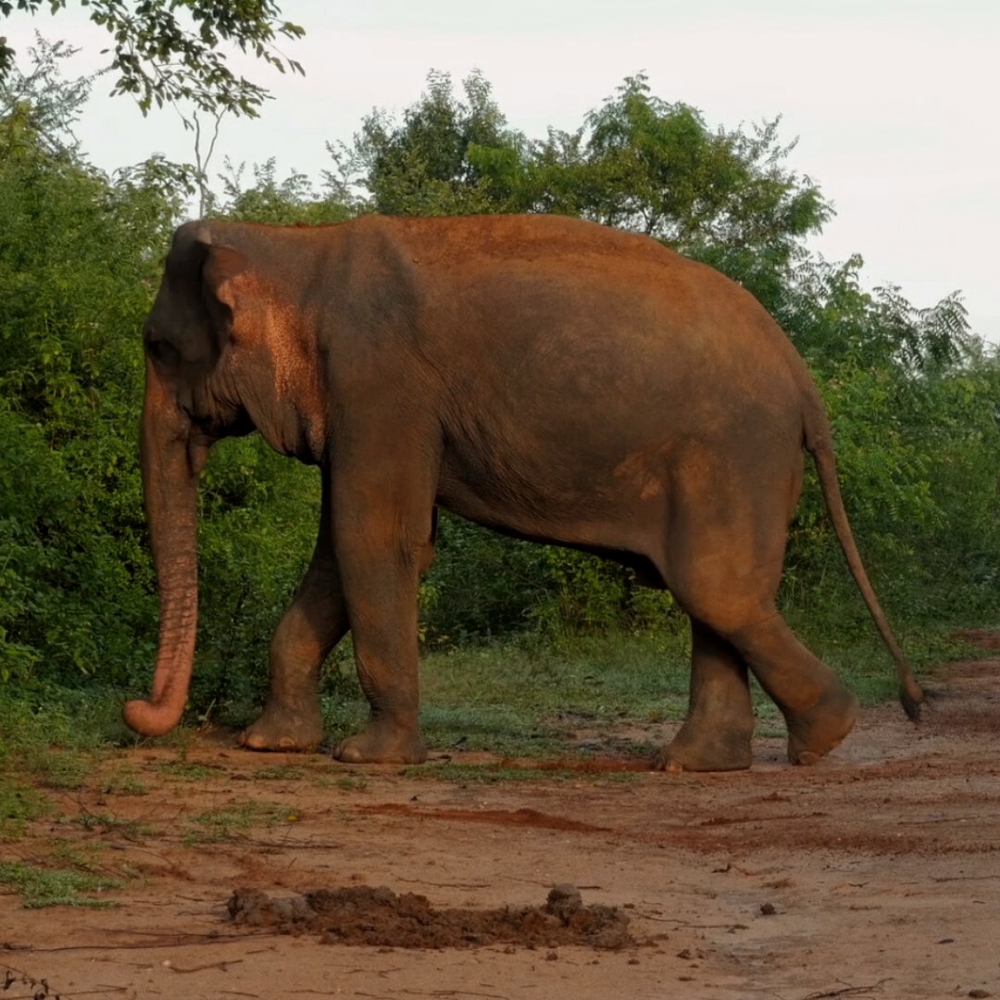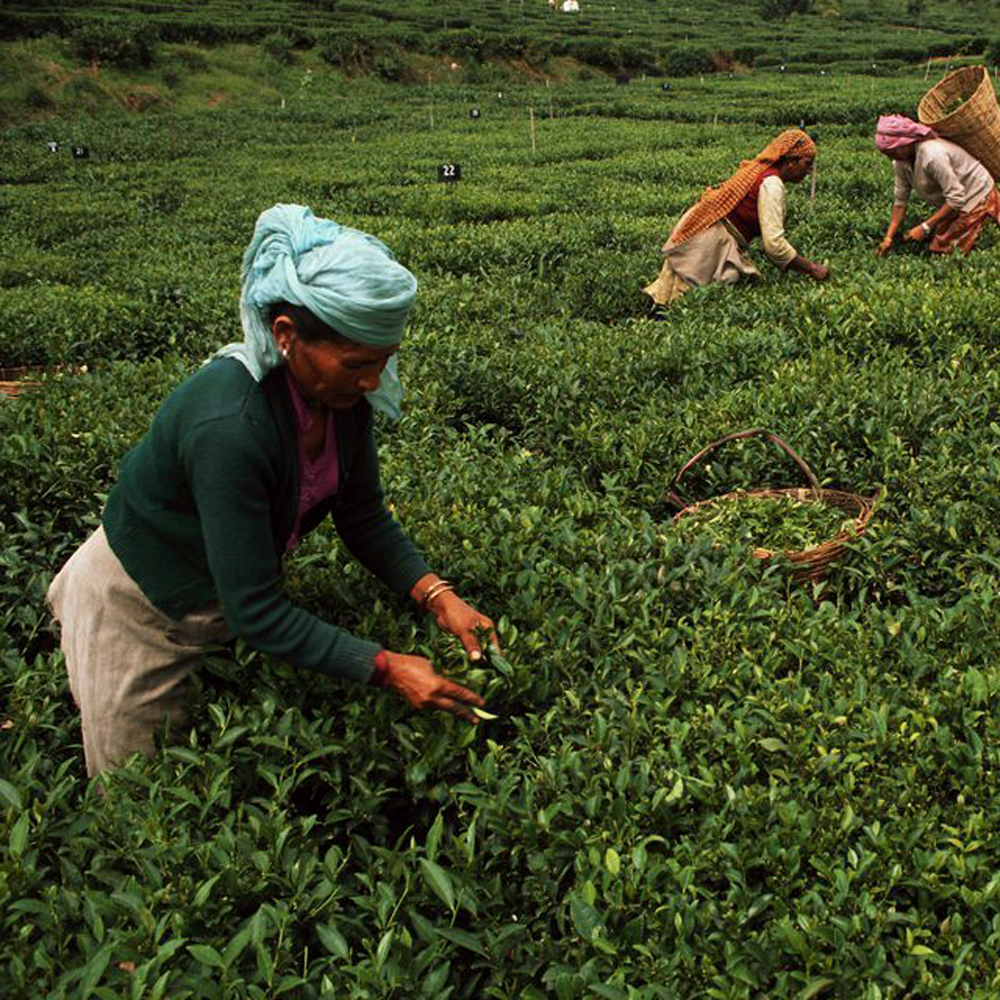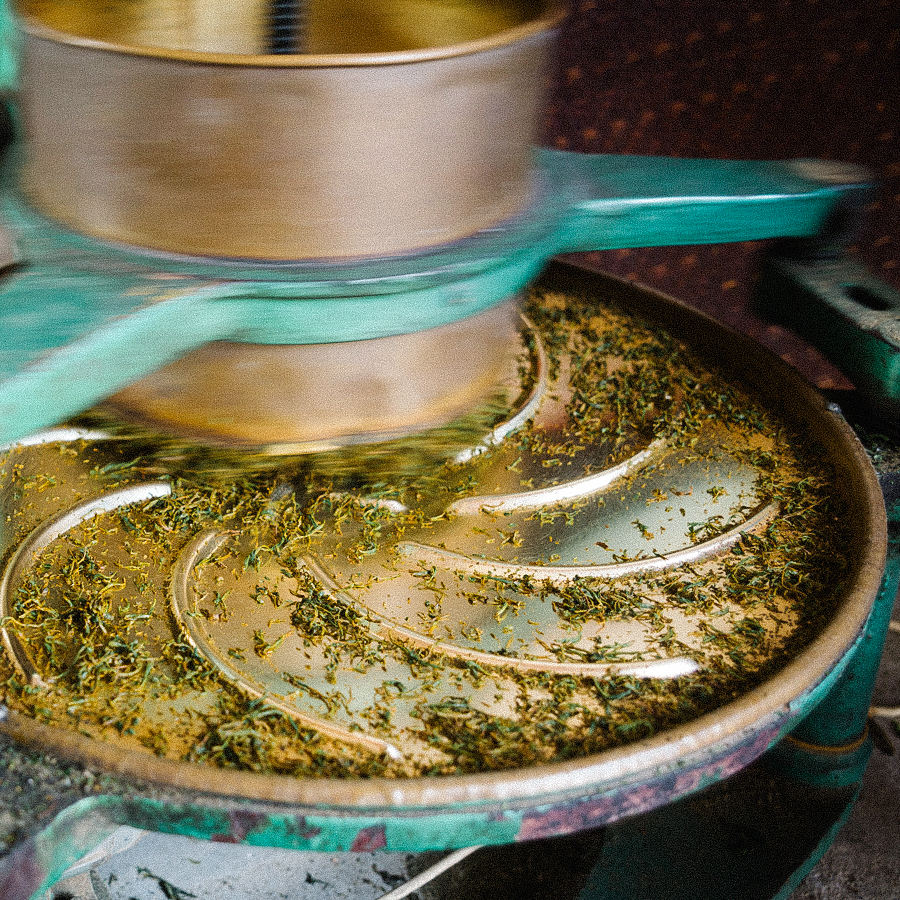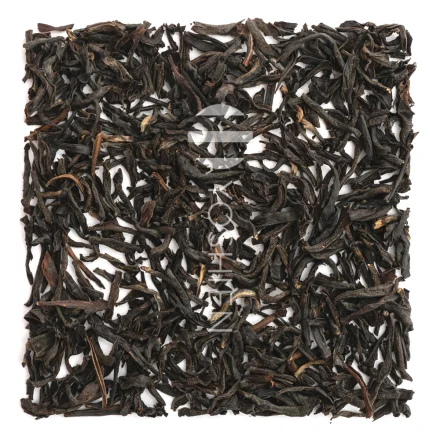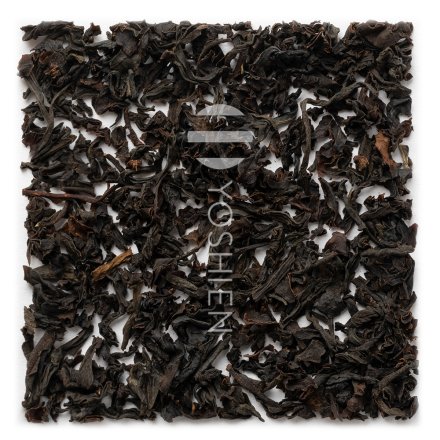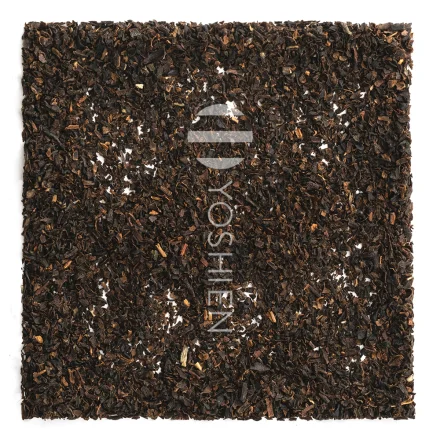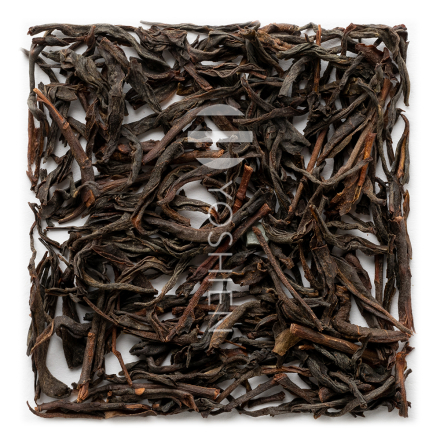The Assam region in northeast India stretches across a flat, fertile plain crossed by the mighty Brahmaputra River. The tropical monsoon climate with hot, humid summers, mild winters and high annual rainfall combined with extremely fertile soil provide optimal conditions for growing tea.
Assam tea is almost exclusively made from the endemic Camellia Sinensis var. Assamica variety, named after its place of origin where it thrives and can be harvested all year round. The bud and first two or three leaves are carefully harvested by hand and then processed soon after at a nearby factory. Here they are sorted, removing any damaged leaves, then rolled or shredded to kickstart the oxidation process.
Strong oxidation is what produces the characteristic deep, malty flavour of Assam. The leaves are then dried under the sun or mechanically indoors to stabilise them and ensure a longer shelf life.
Organic Certification




